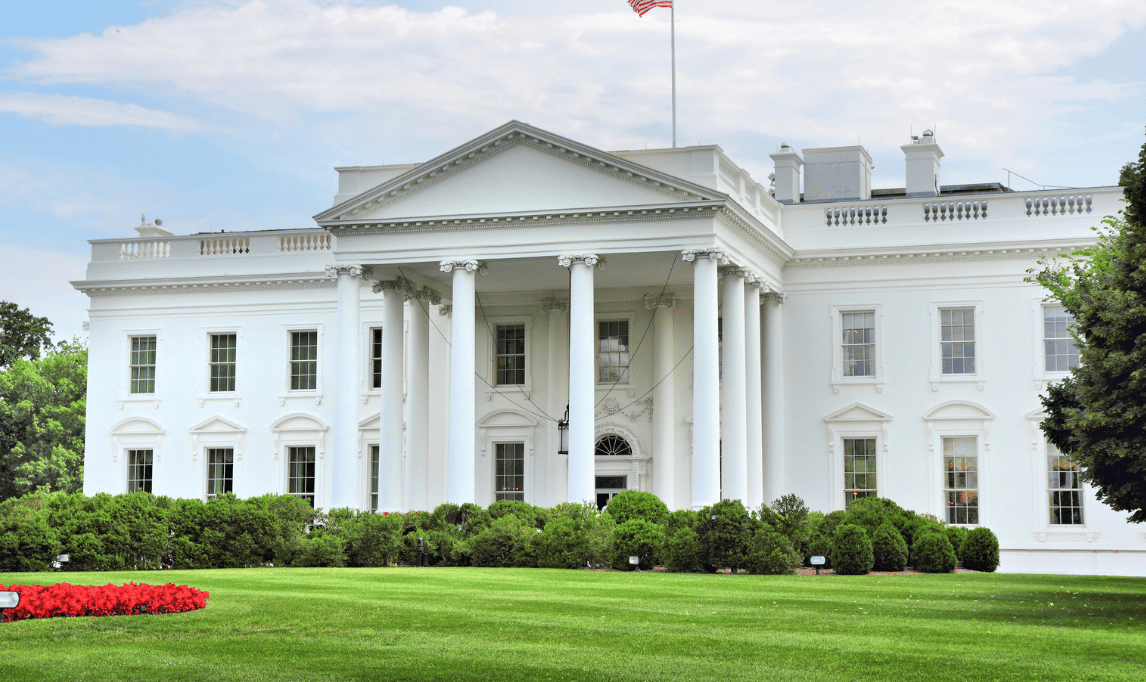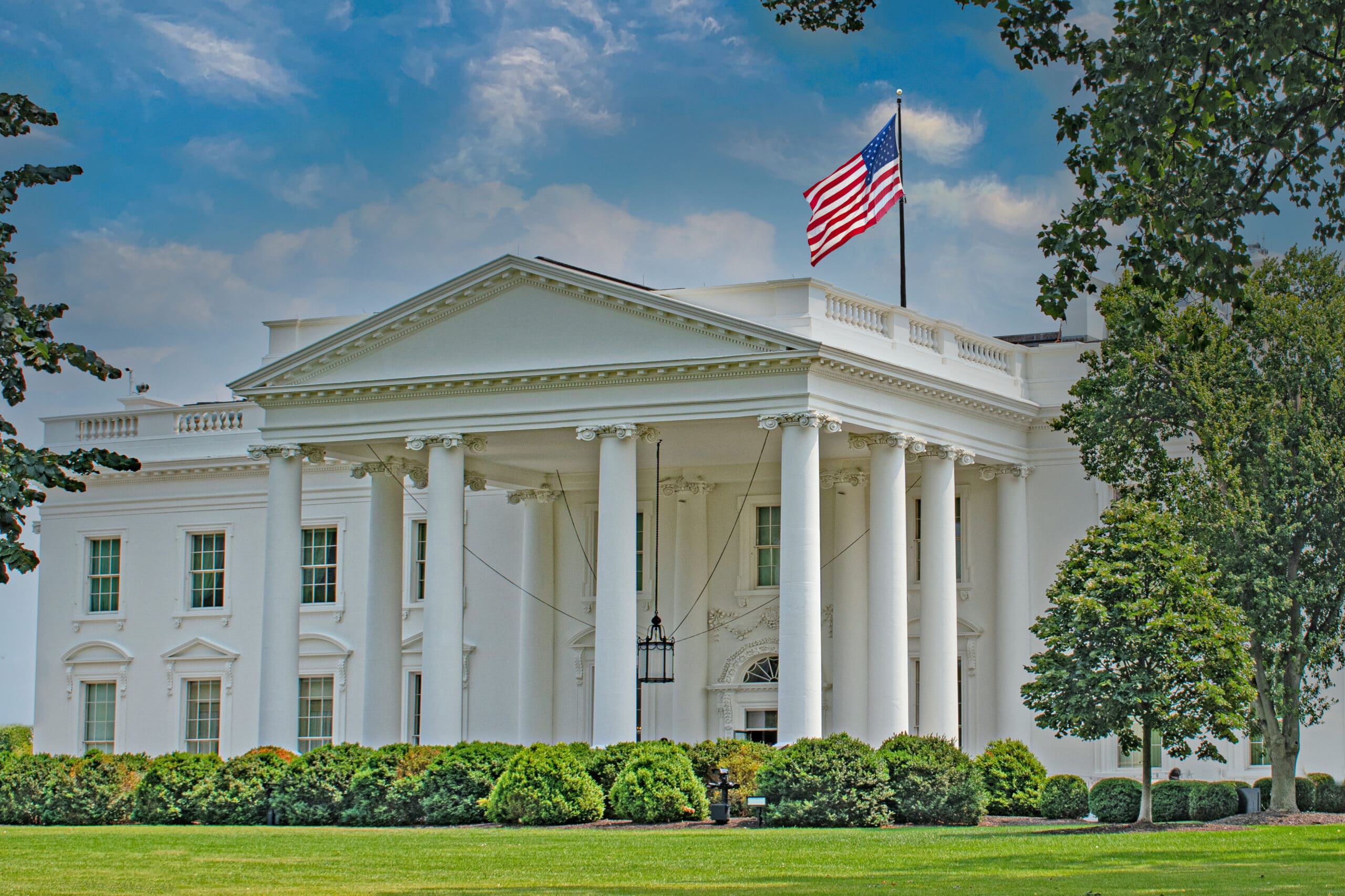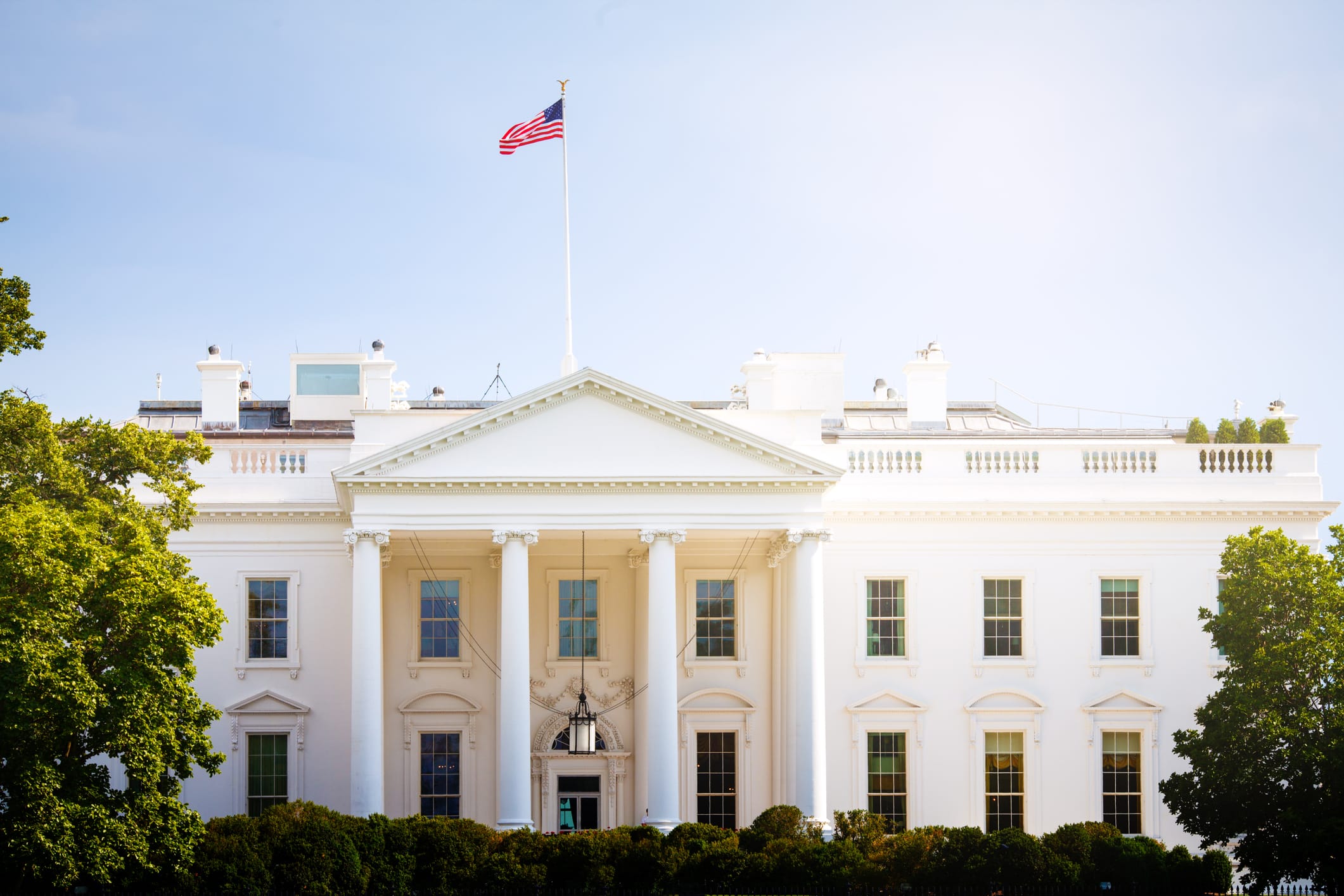The November Emerson College Polling national survey of US voters finds that 52% disapprove of the job Joe Biden is doing as president while 39% approve. The President’s approval is statistically the same as the last Emerson national poll prior to the 2022 Midterm Elections where he held a 39% approval and 53% disapproval rating.
In a hypothetical 2024 Democratic Primary, President Biden holds a 42% plurality of support, followed by Vice President Kamala Harris with 17%, and Bernie Sanders at 12%. On the Republican side, former President Donald Trump leads with 55% support in a hypothetical 2024 Republican Primary, followed by Florida Governor Ron DeSantis with a quarter of Republican support (25%). No other candidate reaches double-digit support for the Republican or Democratic nomination.
Spencer Kimball, Executive Director of Emerson College Polling noted, “There is a stark education divide among Republican primary voters. A 71% majority of voters with a high school degree or less support Trump in 2024 whereas 14% support DeSantis. A 53% majority of those with a college degree, some college, or associate’s degree support Trump while 28% support DeSantis. By contrast, Republican voters with a postgraduate degree are most split: 32% support Trump, 29% support DeSantis, and 18% support Mike Pence for the Republican nomination.”
Kimball added: “There is also an age divide in the Republican primary: younger voters under 50 break for Trump over DeSantis 67% to 14%, voters between 50 and 64 break for Trump 54% to 32%, while Republicans over 65 are more split: 39% support Trump and 32% DeSantis.”
Voters are split on which state should hold the first presidential primary or caucus in the country: Iowa, New Hampshire, Nevada, or South Carolina, a quarter (25%) agree Iowa should remain first in the nation, while 21% think New Hampshire should be first, 18% say South Carolina, 17% say Nevada, and 19% think it should be held somewhere else.
In a potential 2024 Presidential Election between President Biden and former President Donald Trump, Biden holds a four-point lead over Trump, 45% to 41%. Nine percent would support someone else and 6% are undecided. If Florida Governor Ron DeSantis were the 2024 nominee, he trails Biden by four, 39% to 43%; 11% would support someone else and 8% are undecided. In a match-up between President Biden and Representative Liz Cheney, Biden leads 37% to 19%, while 33% would vote for someone else, and 11% are undecided.
Kimball noted, “In a hypothetical match-up between Cheney and Biden, a 55% majority of Republican voters would vote for someone else on the 2024 ballot, along with a 36% plurality of independents.”
The plurality of voters (46%) find the economy to be the most important issue facing the United States, followed by “threats to democracy” (12%), immigration (9%), abortion access (7%), healthcare (6%), and crime (6%).
A majority of voters (52%) think that Congress should continue to investigate the events of January 6th, while 39% think they should not.
Following Ticketmaster’s issues with Taylor Swift’s tour presale last week, US voters were asked if they think Congress should regulate Ticketmaster to allow for more competition in the marketplace. A plurality of voters (38%) think Congress should regulate Ticketmaster, 20% think they should not, 23% are unsure, and 18% have never heard of the matter.
Since Elon Musk has become the owner of Twitter, 31% think the platform has worsened, 24% think it has stayed the same, and 23% think it has improved. Twenty-two percent are not familiar with the matter.
Forty-seven percent of voters are either very (22%) or somewhat (25%) concerned about Britney Griner’s continued imprisonment in Russia, while 42% are either not that concerned (18%), or not at all concerned (24%). Eleven percent are not familiar with the issue.
In the past two years, a plurality of US voters (45%) think race relations in the United States have gotten worse, 33% think they have stayed the same, and 22% think they have improved.
Methodology
The Emerson College Polling survey of US voters was conducted November 18-19, 2022. The sample registered voters, n=1,380, with a margin of error (MOE) of +/- 2.5 percentage points. The data sets were weighted by gender, education, race, party affiliation, and region based on 2024 turnout modeling. It is important to remember that subsets based on demographics carry with them higher margins of error, as the sample size is reduced. Data was collected using an Interactive Voice Response (IVR) system of landlines and an online panel.
###







